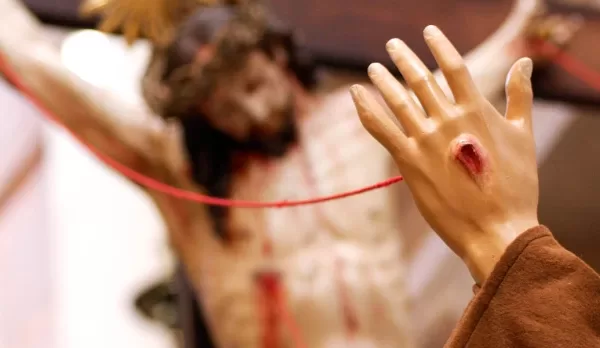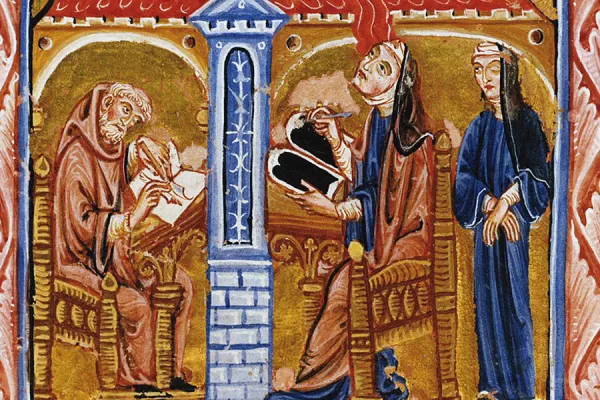Are you ready to uncover the fascinating prophecies of one of the most intriguing women in the history of the Catholic Church? A medieval visionary, Benedictine abbess, writer, composer and mystic, St. Hildegard of Bingen not only spoke about the Church’s end times but also had a clear message of hope and renewal. Her prophecies, as recorded in her book Scivias, offer insight into an era of great upheaval and challenges for the Church, but also a vision of a renewed and strengthened Church, sustained by the grace of God. Let’s delve into the prophecies of St. Hildegard of Bingen and discover how they can inspire us to face the challenges of our own time with faith, courage, and hope. In her book Scivias, which she completed in 1151, St. Hildegard predicted an era of great upheaval in the Church, which she referred to as the “Age of the Grey Wolf.” She foresaw a crisis of faith, corruption among the clergy, and a lack of leadership in the Church. She prophesied that “the time is coming when princes and peoples will reject the authority of the Pope” and “some countries will prefer their own Church rulers to the Pope.” “Toward the end of the world, mankind will be purified through suffering. This will be true, especially of the clergy who will be robbed of all property. “The Church will not be left in peace, and the enemies of Christ and His Church will be many.” She predicted that “the German Empire will be divided,” “church property will be secularized,” and that “priests will be persecuted.” St. Hildegard also predicted that “the Church will be punished because the majority of her members, high and low, will become so perverted.” But that’s just the beginning. She wrote to St. Bernard of Clairvaux that “the Church will sink deeper until she finally seems to be extinguished, and the succession of Peter and the other Apostles to have expired. But, after this, she will be victoriously exalted in the sight of all doubters.” Despite these challenges, St. Hildegard believed that the Church would ultimately overcome these obstacles and emerge stronger than ever before. She foresaw a time of spiritual renewal and the rise of a new generation of holy leaders who would guide the Church into a new era of peace and prosperity. She said, “the Church will be divided, and there will be much strife and discord, but the faithful will persevere and be rewarded.” “The Church will suffer greatly, and her enemies will seem to triumph, but God will intervene and restore her to her former glory.” She also predicted that “the Church will be purified and made radiant, and many will be saved through her” and that “the Church will be in turmoil and confusion, and many will be deceived, but those who remain faithful will be rewarded.” “The Church will be attacked by many enemies, but she will emerge victorious and will shine like the sun.” St. Hildegard believed that “the Church will undergo a great trial, but she will be sustained by the grace of God and will emerge stronger than ever before.” The prophecies of St. Hildegard of Bingen offer a powerful message of hope and renewal for the Church. As we witness a world in chaos, where faith is under attack, and the Church is facing an internal crisis, her prophecies speak to us with a prophetic urgency. Despite the challenges and trials she foresaw, she firmly believed that the Church would ultimately emerge stronger and more radiant than ever before. Her prophetic words are not just an interesting historical artifact but a timeless reminder that God’s grace is always at work, even in the darkest moments of human history. Let us take inspiration from St. Hildegard’s prophecies to face the challenges of our time with faith, courage, and hope. It is important to keep in mind that interpreting these prophecies requires prayerful discernment, as they are not considered official Church teachings. However, St. Hildegard’s status as a Doctor of the Church, which was officially conferred upon her by Pope Francis in 2019, gives her prophecies considerable credibility. She was canonized by Pope Benedict XVI in 2012, and her recognition as a Doctor of the Church makes her one of only four women to have received this title. O Mary, Mother of the End Times, pray for us. https://www.youtube.com/watch?v=E5dwcaO6my0









